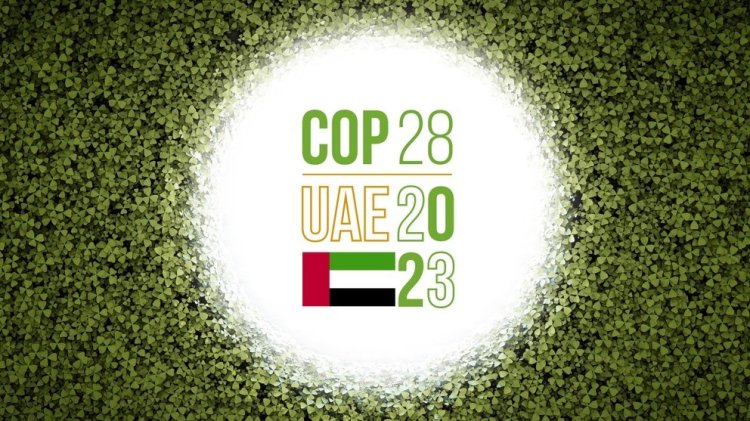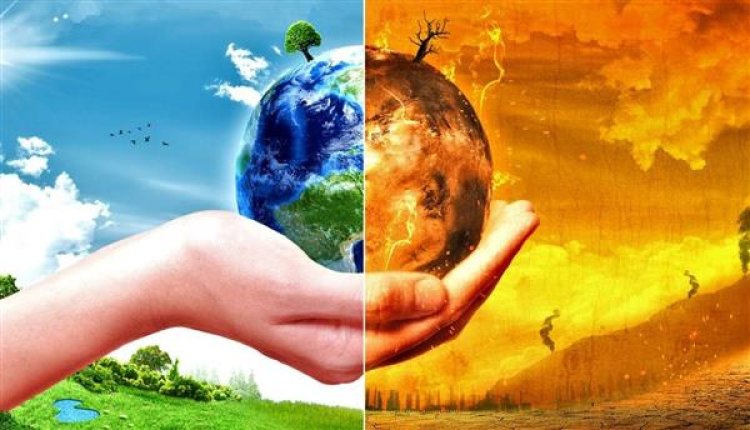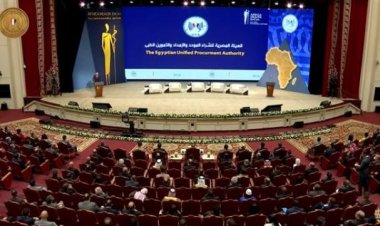COP 28 .. UAE is addressing an urgent global crisis that transcends the borders of countries

The Climate Conference of the Parties (COP28), which is considered one of the most important international conferences concerned with combating the phenomenon of climate change, begins today, Thursday, November 30, and continues until December 12, 2023.
COP28 climate conference
The phenomenon of climate change is considered an urgent global crisis that transcends the borders of countries, and requires international cooperation and the combined efforts of everyone, including all individuals of all ages, specializations and countries. The Climate Conference of the Parties is considered the main decision-making body in the United Nations Framework Convention on Climate Change, and brings together the 198 parties. Which signed the agreement (197 countries in addition to the European Union) and their negotiators, and it has been held annually since 1995, and the UAE hosts its twenty-eighth session.
The first session of the Conference of the Parties (COP) was held in Berlin, Germany, in March 1995. The headquarters of the Secretariat of the United Nations Framework Convention on Climate Change is located in Bonn, and the Conferences of the Parties to the United Nations Framework Convention on Climate Change hold conferences held annually under the auspices of the Secretariat. The Convention is the official meeting place to negotiate and agree on how to address climate change, reduce emissions, and limit global warming.

Effective climate action
An essential task of the Conferences of the Parties is to examine national reports and emissions data submitted by participating countries, which provide basic information on each country's actions and the progress it has made towards achieving the overall goals of the Convention.
The Conference of the Parties meets every year unless the Parties decide otherwise, and the five recognized United Nations regions (Africa, Asia, Latin America and the Caribbean, Central and Eastern Europe, and Western Europe) alternate in assuming the presidency of the Conference, and this rotation ensures the opportunity for different parts of the world To host the conference and demonstrate commitment to addressing climate challenges, the conference will be held this year in the UAE.
Tomorrow will be a decisive station, in which the world's efforts will unite around effective climate action and providing solutions, which requires cooperation between civil society, governments, industries and all sectors of the economy, according to the Emirates News Agency, WAM.
Climate issues
COP28 is one of the largest and most important international gatherings in 2023, and is watched and watched by many from all over the world. As the world's largest decision-making process on climate issues, more than 70,000 people, including heads of state, are expected to participate in it to build consensus. And tangible progress has been achieved in the negotiating process between parties and delegations, thousands of non-governmental organizations, the private sector, companies, youth, stakeholders, and others.
The Secretariat of the United Nations Framework Convention on Climate Change is the United Nations entity charged with supporting the global response to the threat of climate change.
The Secretariat was established in 1992 when countries adopted the United Nations Framework Convention on Climate Change, and the original headquarters of the Secretariat was in the Swiss capital, Geneva, after which it moved to the German city of Bonn in 1996.
The Secretariat initially focused on facilitating intergovernmental negotiations on climate change, but today it plays a critical role in supporting various bodies to implement the objectives of the Convention, the Kyoto Protocol, and the Paris Agreement. This support includes providing technical expertise, analyzing climate change data provided by Parties, and helping to Implementing the mechanisms of the Kyoto Protocol and maintaining the register of nationally determined contributions established under the Paris Agreement, the secretariat also organizes and supports multiple negotiating sessions each year, including conferences of the parties.

On December 11, 1997, at the Third Conference of the Parties in the Japanese city of Kyoto, developed countries pledged to limit and reduce greenhouse gas emissions. This treaty is known as the Kyoto Protocol, and it is a legally binding agreement that took effect in 2005, and was signed by 192 parties. It is a historic milestone in Combating climate change.
As for the 2015 Paris Agreement, it was adopted at the COP21 Conference of the Parties, which is one of the most prominent stages of multilateral climate action led by the United Nations, with the aim of mobilizing the collective effort of the parties to preserve the possibility of avoiding global temperature rises exceeding 1.5 degrees Celsius above pre-industrial levels. By 2100, and working to adapt to the already existing consequences of climate change.
The agreement calls on countries to review their commitments every five years, and to provide the necessary funding to developing countries to help them mitigate the repercussions of climate change, support their ability to adapt to it, and enhance climate resilience.

Climatic phenomena
The frequency and intensity of climate events is expected to increase in the coming years unless we take decisive action to limit the rise in global temperatures.
Scientists have agreed on the necessity of avoiding the rise in global temperature exceeding 1.5 degrees Celsius above pre-industrial revolution levels, because achieving this goal is crucial to reducing the increase in climate degradation and avoiding its devastating repercussions.
In other words, the global average temperature should not exceed 1.5 degrees Celsius (2.7 degrees Fahrenheit) above pre-industrial levels to ensure a safe and sustainable future.


 Shrouq
Shrouq 












